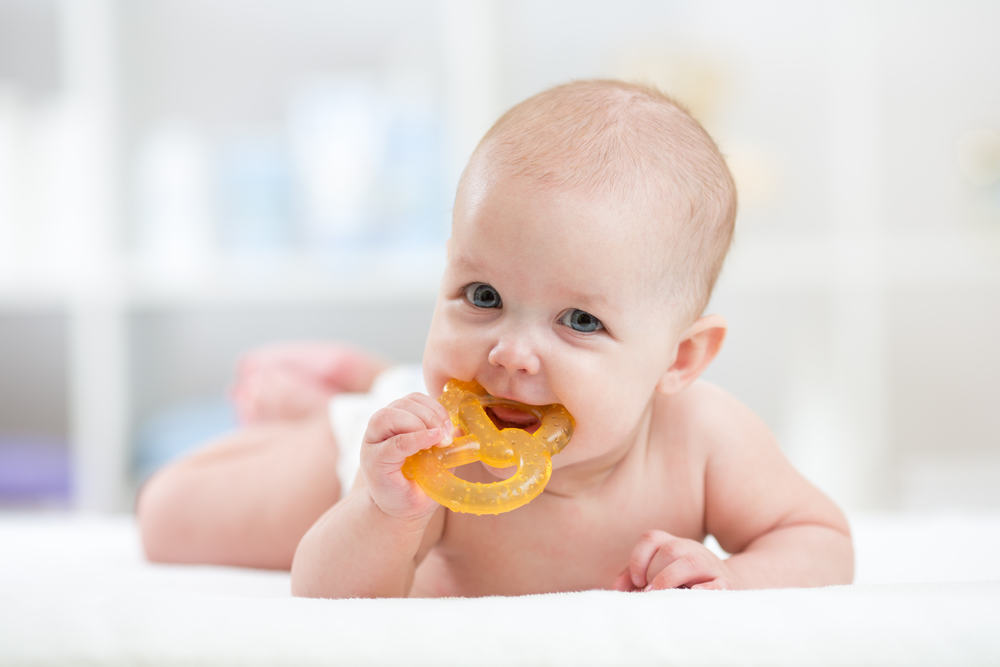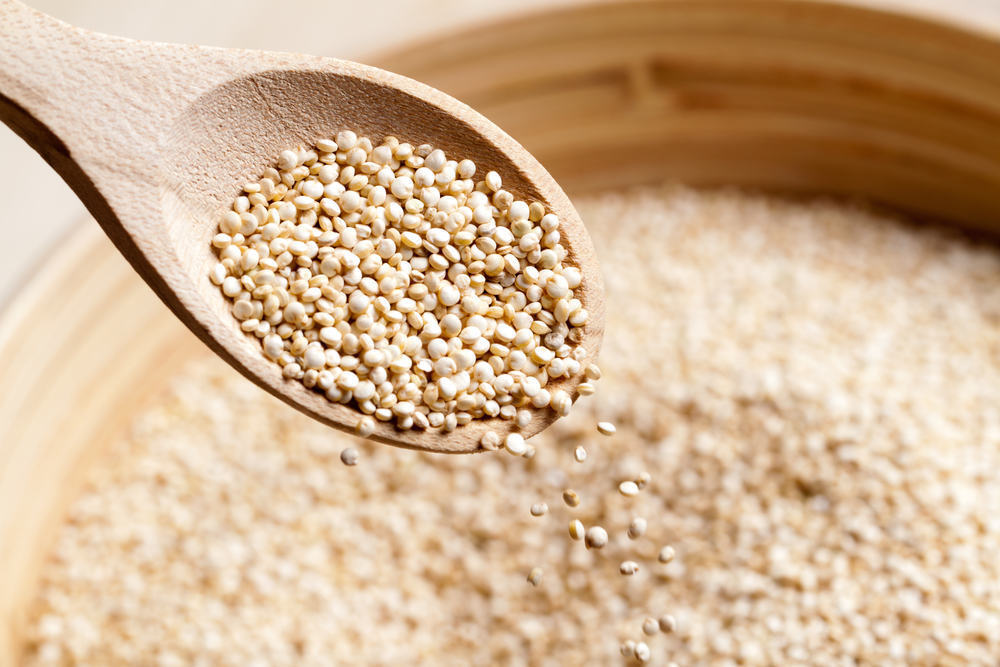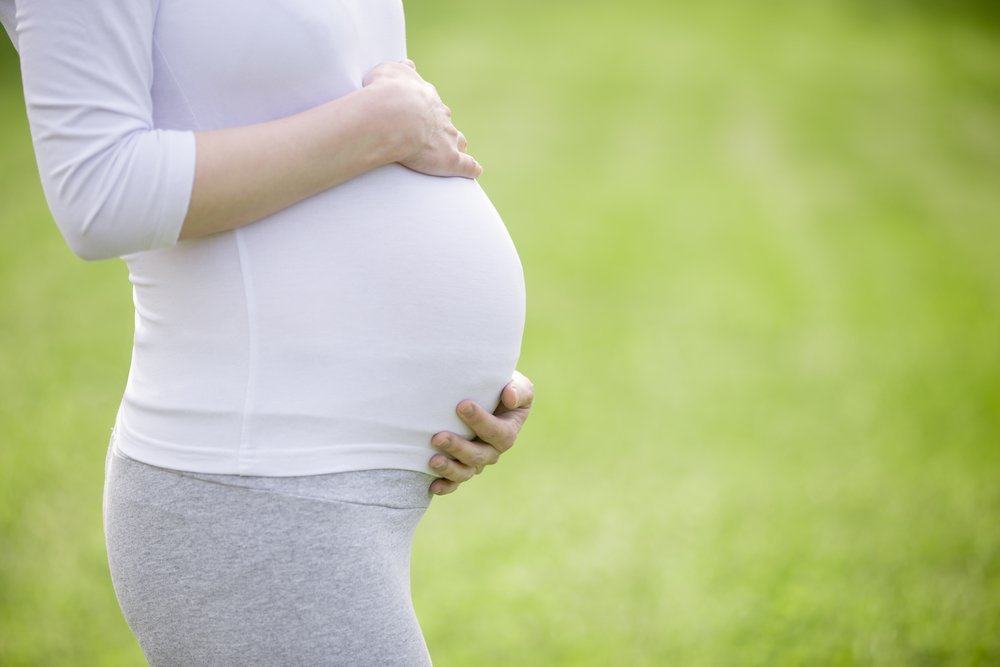Contents:
- Medical Video: Top 7 Teething Symptoms & Signs in Babies
- How old are the baby's teeth growing?
- Signs of baby teeth want to grow
- 1. Stools
- 2. Coughing or vomiting
- 3. Crying
- 4. Like to bite
- 5. Gums swell
- 6. Wake up often at night
- 7. Having trouble eating
- 8. Tugging at the ear or scratching the cheek
- 9. Fever
- 10. Put your hands in your mouth
Medical Video: Top 7 Teething Symptoms & Signs in Babies
When your baby's teeth will grow, he will feel a little uncomfortable. Unfortunately, your baby cannot communicate and tell you what complaints are felt. Moreover, usually every baby will show different signs at different ages. As a result, your baby will become fussy for no apparent reason. For this reason, you need to pay attention and understand what your baby's teeth will grow.
How old are the baby's teeth growing?
The baby's teeth will grow gradually. In general, tooth growth in infants occurs at the age of 6 months. However, the teeth of some babies can grow faster, which is around the age of 4 months. Usually the baby's teeth grow in pairs, either a pair above or a pair first below. Don't worry if your baby's teeth haven't appeared yet. The first teeth that grow at the age of 12 months are still considered reasonable and healthy.
Signs of baby teeth want to grow
If you can't see the appearance of tiny teeth on your baby's gums, pay attention to some other signs that indicate the baby's teeth growth. Keep in mind, in each baby the signs shown can vary. Even in some cases, the baby will not show any signs when his teeth want to grow. This is also still normal. Here are 10 signs your baby's teeth will grow.
1. Stools
When the teeth grow, your baby will produce more saliva than usual. So, your baby becomes easier to stool. Even some babies will experience rashes around the mouth, chin, and neck. This is because moist saliva continues to wet the baby's face. Always provide a soft cloth or sterile tissue to wipe the baby's saliva and wear a special baby apron that easily absorbs water. As you get older, your baby will become more proficient in controlling saliva in his mouth.
2. Coughing or vomiting
Babies haven't really been able to control all the muscles and nerves in their mouth and throat. Because in your baby's mouth there is too much saliva, your baby is at risk of choking when trying to swallow. This is usually characterized by coughing or vomiting. If the cough and vomiting experienced by your baby are not accompanied by colds, flu, or diarrhea, you need not worry.
3. Crying
Some babies will only murmur small when the gums or mouth are uncomfortable. However, for some babies, the process of teething can feel very painful. Gum tissue that is still very vulnerable can experience inflammation, especially in the growth of your baby's first teeth. This will cause pain. To relieve pain, give soft, cold foods like yogurt or toys teether (made of soft and rubbery silicone or rubber) that has been put in the refrigerator. These foods and toys function like cold compresses that will help relieve pain.
4. Like to bite
The pressure from the gums that the baby feels when his teeth want to grow will feel very uncomfortable. Babies also often bite objects around them, including yourself. If you are still breastfeeding and the baby starts biting, pay close attention when the jaw starts to tighten before biting. Immediately slip your clean finger between the baby's gums through the tip of his lips. Gently remind him that he shouldn't bite you. If your baby is biting the skeleton of a box or baby cot, cover it with a soft cloth that can absorb water.
5. Gums swell
You might be able to see that your baby's gums are red and swollen. This is natural for babies whose teeth will grow. If the gum part is within your reach, you can give a light massage to the gums with your clean fingers. Your baby may be surprised or protest when you first do this, but he will feel more comfortable after his gums are massaged. You can also massage it with a soft cloth that has been moistened with cold water.
6. Wake up often at night
The discomfort suffered by your baby does not only appear in the morning or afternoon. Even when your baby is sleeping, he can wake up due to pain or itching in his gums. Pay attention if your baby often wakes at night for no apparent reason and at unusual hours. This could be a sign that the baby's teeth want to grow.
7. Having trouble eating
Because the mouth feels uncomfortable, it's natural for your baby to lose appetite. If you have done various ways and your baby is still fussy or refuses to eat, immediately contact your pediatrician. Your baby may be prescribed painkillers such as acetaminophen specifically for babies.
8. Tugging at the ear or scratching the cheek
The baby will start tugging at the earlobe or scratching his cheek when his teeth want to grow. This is because her gums will feel a little itchy and uncomfortable, while your baby cannot reach the part of the gum. In order for your baby not to get scratched or hurt because of this, you can try to distract him or offer a game teether. Be careful because your baby might do this while sleeping, so make sure that your baby's nails and hands are always clean.
9. Fever
If the inflammation that occurs in the gums is serious enough, your baby may experience a fever. However, a fever caused by inflammation of the gums because the baby's teeth want to grow is usually not so high. If your baby's fever reaches 38 degrees Celsius and above, then the cause is not teeth that want to grow.
10. Put your hands in your mouth
To relieve the discomfort or itching that arises, your baby will often put his hand in the mouth. So you should keep your hands, toys, and things that your baby might touch clean. Also remind your baby to avoid this. It's better to prepare cold compresses with a soft cloth to help reduce pain or itching in the gums when the baby's teeth are growing.
READ ALSO:
- Are Sticky Habits Good for Babies?
- Finding Out Is Your Youngest Tooth Troubled
- Tips for Choosing Milk Bottles and Pacifiers that are Good for Babies












